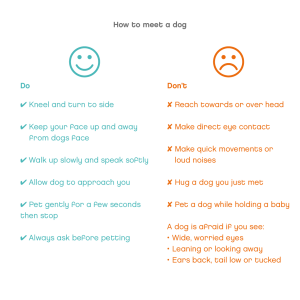Just like us humans, dogs can also become stressed, and the causes are extremely varied. Stress can affect dogs of any age, breed, or sex. Behavioural changes are often the first sign of stress and can be sudden in onset or develop more gradually.
The symptoms of stress in dogs are often subtle and hard to spot. It’s important to contact your vet with any changes, sudden or gradual, in your dog’s behaviour. Stress can lead to emotional and physical illness.
Overview
What is stress in dogs?
Stress is defined as any kind of change that causes physical or emotional strain. Anxiety is the body’s response to stress. Stress and anxiety are often used together, and there is an overlap between them. Stress in dogs is common and can appear as both changes in their behaviour and their physical health.
What causes stress in dogs?
Dogs are all different, and some are more sensitive to certain changes than others.
The 2022 PDSA animal well-being report shows that 41% of dogs are afraid of fireworks, and 11% of dogs show signs of distress when left alone.
Environment changes
Any change in their or your routine can cause stress
- Moving home, building work, re-decorating, or new furniture
- Staying at home more than normal
- Someone moving out or going on holiday
- Being left alone
- Guests visiting or a new baby in the home
- Fireworks or unexpected loud noises
- Travelling in the car
- Trips to the vets
- Inappropriate handling or punishment
- Introducing new pets to the house
- Loss of another pet in the household
Medical Conditions
- Any medical condition, illness, or injury can cause stress in dogs. It’s more common with long-term diseases such as kidney disease, allergies (Itchy), or Arthritis.
- Old age changes and Dementia can lead to memory loss and stress.
Other causes
- Boredom or frustration
- Fear
Any changes in your dog’s environment, even small ones, can lead to stress. It’s always best to anticipate and prevent them ahead of time. Our Joii team are available 24 hours a day for advice.
Symptoms
Symptoms of stress in dogs
Stress in dogs can lead to emotional and physical illness.
How to tell if your dog is stressed:
Behavioural signs
- Shaking, trembling, or shivering
- Restlessness or pacing
- Barking or whining
- Repeated yawning, drooling, or licking their lips
- Excessive panting
- Going to the toilet in the house
- Sudden aggression
- Destructive behaviour
Changes in body language
- Dilated pupils and blinking faster than normal
- The whites of the eye are more visible
- Ears back and close to the head
- Tail tucked under the body, crouching down
Physical health
- Eating and drinking less than normal
- Vomiting or Diarrhoea
- Poor coat condition: scruffy or matted
- Excessive shedding, licking themselves, and skin sores
- Weight loss
- Eating non-food items, also called PICA
- Low energy, sleeping more than normal
Risk
Are some dogs more at risk of stress than others?
Any dog, regardless of age, breed, or sex, can become stressed. Just like humans, dogs are all individuals, and they all react differently to changes in situations.
However, some risk factors can lead to stress:
- A lack of socialisation as a puppy can lead to fear-related problems in the future
- Underlying disease, such as pain due to arthritis
- Older dogs are more at risk of dementia, which can affect anxiety levels
- Rescue dogs with pre-existing issues
Diagnosis
How is stress diagnosed in dogs?
With any change in behaviour, sudden or gradual, it is best to contact your vet. If there are physical symptoms present too, do this as soon as possible. Your vet will usually start by investigating potential medical causes.
This may include
- A physical examination to check for any abnormalities, including pain
- Blood tests
- Urine tests
- Skin tests, such as a biopsy
- Imaging: X-rays or ultrasound
Once medical conditions have been investigated and ruled out, the next step is to address behavioural causes. It’s best to speak with a behaviour specialist to help identify underlying causes. They will create a specific plan for your dog’s individual needs.
Behaviour specialists
- A referral to a behavioural specialist is always beneficial, especially if there is aggression.
- When looking for a behaviourist, it’s important to make sure you check their accreditations. It is extremely important to find someone suitably qualified who uses ethical and up-to-date techniques.
- Your vet will also be able to help you find a suitable behaviourist; many only work with referrals. See the following organisations for more information about behaviour specialists:
ABTC (Animal Behaviour and Training Council) is a regulatory body that sets and maintains standards for the profession and has a national register for appropriately qualified animal trainers and behaviourists: https://abtc.org.uk/practitioners/?_abtc_role=clinical-animal-behaviourist
CCAB (Certified Clinical Animal Behaviourist) – an accreditation scheme by the ASAB ( association for the study of animal behaviour): https://www.asab.org/ccab-register
FAB (Fellowship of Animal Behaviour Clinicians) has a list of certified members and promotes high ethical standards and up-to-date techniques: https://fabclinicians.org/find-a-behaviourist/
APBC (Association of Pet Behaviour Counsellors) is a network of experienced and qualified counsellors: https://www.apbc.org.uk/find-an-APBC-member/
Vet treatment
What’s the treatment for stress in dogs?
Treatment for stress in dogs will depend on whether there are any underlying medical concerns. Medical conditions may require specific medications.
Stress colitis
- Inflammation of the large intestine, caused by stress.
- This leads to diarrhoea, often with blood and mucus.
- Most dogs will recover within a few days if the cause of the stress is found and removed.
- Some dogs may need a probiotic and gastrointestinal food to help the symptoms clear.
Skin conditions
- Stress can lead to skin problems due to excessive licking, biting, or overgrooming.
- Sometimes they can develop skin sores, rashes, and areas of alopecia due to this.
- Treatment may include anti-itch medication, antibiotics, special shampoos, and parasite control.
Treatment of behavioural problems
The treatment will depend on the cause of the stress. It will usually involve an adaptation plan at home along with the use of behavioural medications.
- Finding the underlying cause(s) and adapting to stop or reduce this. It is often necessary to seek the help of a behavioural specialist to do this.
- Some dogs may need prescription medication to help reduce behavioural problems, such as sedatives or anti-anxiety medications.
Home treatment
How to look after a dog with stress at home
There are several things you can do at home to help if your dog has been diagnosed with stress-related problems. They can also be helpful if you expect any changes in the environment or routine.
Calming supplements and diffusers
- Pheromone adapters, sprays, and wipes. These products release a soothing pheromone into the air that can help reduce stress levels. They only affect pets, not humans.
- Calming supplements. These contain natural ingredients that can help ease stress and anxiety.
- Thundershirt and calming dog bed. Have been found to help reduce anxiety.
It’s important to seek advice from a professional to find the underlying cause of stress along with using these types of products. They should always be used alongside a behavioural modification plan. It may take several weeks before you see any improvement.
Environment
- Make sure to clean any soiled areas of the house with an enzymatic cleaner.
- Follow the tips below on how to prevent stress.
Our Joii team are available 24 hours a day, call us now for advice.
Prevention
Tips on how to prevent stress in dogs
- Make sure your dog has all the key resources they need for a happy and healthy life
- Constant access to fresh water and adequate nutrition for their life stage.
- A safe space in the house that they can rest and hide in if needed.
- Make sure these resources are easily accessible, especially for elderly or unwell dogs who may not be able to walk as far or struggle with stairs.
- Make sure your dog is well socialised during the important phase at 4 to 12 weeks old.
- Keep a consistent routine for your dog. This includes feeding and walking at the same time every day.
- Provide adequate stimulation, both mental and physical. This includes regular walks, sniffing activities, using puzzle toys, hiding treats for them to find, and teaching new tricks and training.

- Anticipate any changes, such as moving house, and take steps in advance to reduce this stress on your dog. Place pheromone diffusers at home or book a stay at doggy day-care.
- Gradually introduce any new pets into the household.
- Pay attention to their body language.
- Avoid approaching dogs from above; get down to their level and let them come to you.
- Never handle your dog inappropriately or punish them; this can lead to increased stress.
- Positive reinforcement and rewards are extremely important.
- Avoid shouting or erratic behaviour; dogs can sense when their owners are stressed too.
- Avoid them becoming over-attached and developing separation problems. Get them used to time apart gradually. You can leave them in another room for short periods with a chew or toy to keep them distracted.
- Make sure you get your dog regularly checked over, at least 1-2 times per year, by your local vet to assess for illnesses.

When to worry
When you should be worried about a dog with stress
Seek help from your local vet practice
- If there is any sudden or gradual change in your dog’s behaviour
- Any form of aggressive behaviour
- If your dog is losing weight
Call us and speak to one of our Joii Vets if
- You think your dog is stressed
- You are anticipating changes in your dog’s routine and want to know how to prevent stress.
- You want to know more about different supplements or diffusers to help with stress.
- You need advice about what toys or treats to use for mental and physical stimulation for your dog.
- You are not sure what key resources your dog needs.
- You have any questions about finding an appropriate behaviour specialist.
We offer pet wellbeing and behavioural services through the Joii App; call our nurse or vet team to find out more.










